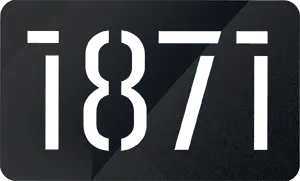
Tech, catering and design companies are rushing to sell employers on fever scanners, box lunches and office floor-planning apps for social distancing. But it’s too soon to tell if they will work.
Truework, an income verification start-up, recently introduced software to help employers keep track of their workers’ health status.
Gensler, an architecture and design firm, has a workplace floor-planning app that generates social-distancing layouts for desks and other office furniture.
PwC, the professional services firm, is using technology that it originally developed to track inventory for a newcontact-tracing system that logs employee interactions so workers can be notified in the event of exposure to the coronavirus.
With companies pressing to figure out how to safely reopen workplaces, makers of everything from office furniture to smart ventilation systems are rushing to sell them products and services marketed as solutions. Some companies, like makers of thermal cameras that sense skin temperature, are rebranding their wares as virus-containment fever-scanning products. Others are creating entirely new services.
And they have a captive market. To protect employees and reduce liability for virus outbreaks at work, companies are racing to comply with public health guidelines on issues like employee screening and social distancing. In the United States, the market for contact-tracing technologies for employers could soon be worth $4 billion annually, according to estimates from International Data Corporation, a market research firm.
But the preventive tools and pandemic workplace rules are so new — as is the emerging science on the virus — that it is too soon to tell how well, or if, they work.
“These are all untested theories and methods right now,” said Laura Becker, a research manager focusing on employee experience at I.D.C. “What is going to be the most effective component of all of these work force return strategies? We don’t know.”
The Lobby
When workers eventually return to the office, they may find that the lobby resembles an airport security checkpoint. At least that’s the vision that Kastle Systems, a 48-year-old Falls Church, Va., company that designs, installs and monitors security systems for several thousand commercial buildings, recently began marketing to its clients.
Businesses that use the company’s coronavirus management system, KastleSafeSpaces , may ask employees to download an app that will automatically open entrance doors for people eligible to come to the office. Workers who fill out a health screening questionnaire ahead of time may proceed to a lobby fast lane to have their temperatures checked. Those who have been asked to stay home because they recently tested positive for coronavirus may go on a kind of no-fly list and find that doors will automatically stay closed for them.
“The idea is really to create this profile where you can identify who is known safe, who’s known not safe and then who needs to be screened when they get in,” said Mark D. Ein , the chairman of Kastle. “It’s a little bit like airports where you have Clear precheck or regular check, depending on people’s profile.”
Clear, the biometric identification company known for its air-traveler identification service, recently introduced a system called Health Pass for office buildings, restaurants, retailers, cruise ships and sports arenas. It will use facial recognition to confirm employees’ identities and vet worker-provided health information — such as symptom data and verified test results — so they can be cleared to enter workplaces. Caryn Seidman-Becker, Clear’s chief executive, said this kind of multilayered approach to entry screening could help reduce risk for employers and create a safer working environment.
Read the full article here!
Join as an 1871 Early Stage Member.
Attend info sessionSubscribe to our ICYMI newsletter.
Share this post:
